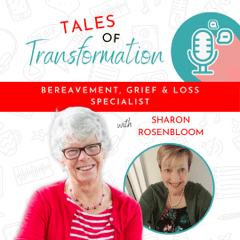-
9AM - 5PM
Navigating Shock and Denial: The 1st Stage of Grief
Explore coping strategies for the overwhelming initial reaction to loss: shock and denial.

Loss is an inevitable part of life, and when we experience the death of a loved one, the end of a relationship, or any other significant change, the journey through grief begins. The first stage of this journey is shock and denial. In this article, we will explore the initial reactions to loss and provide strategies to cope with the overwhelming feelings of shock and denial.
Understanding Shock and Denial
When we first learn about a loss, our initial reaction is often one of shock. This shock can manifest as numbness, disbelief, or disorientation. It is our body’s way of protecting us from the immediate emotional pain associated with the loss.
Denial, on the other hand, is a psychological defence mechanism that allows us to temporarily avoid the reality of the situation. We may have thoughts such as “This can’t be happening” or “There must be some mistake.” Denial helps us to gradually absorb the news and prepare ourselves for the emotional journey ahead.
Coping Strategies for Shock and Denial
- Give yourself time: It is crucial to give yourself the time and space needed to process the initial shock and denial. Remember, there is no right or wrong way to grieve, and each person’s experience will be unique.
- Seek support: Reach out to friends, family, or a professional grief counsellor for support during this time. Having someone to talk to can help you process your feelings and offer comfort in your time of need.
- Acknowledge your feelings: It is essential to recognise and accept your feelings of shock and denial. Suppressing these emotions can prolong the grieving process and make it more challenging to move forward.
- Create a safe space: Find a quiet, comfortable place where you can reflect on your emotions without distractions. This might be a quiet room in your home, a park, or a peaceful spot in nature.
- Practice grounding techniques: Grounding techniques can help you stay present and focused during moments of intense emotion. Try deep breathing exercises, progressive muscle relaxation, or mindfulness meditation to help anchor yourself in the present moment.
- Journaling: Writing down your thoughts and feelings can be a helpful way to process your emotions during the shock and denial stage. Journaling can provide a safe space for you to express your feelings without judgement or fear.
Moving Forward
As you navigate through the shock and denial stage of grief, remember that it is a normal and necessary part of the grieving process. Be patient with yourself and allow time for healing. By using the coping strategies outlined in this article, you can begin to work through your feelings of shock and denial, and start the journey towards acceptance and healing.
In following articles, we will continue to explore each stage of the grief process, offering compassionate guidance and support for those who are experiencing loss. Remember, there is help available, and you don’t have to face this journey alone.
If you’re in need of someone to talk to, don’t hesitate to reach out and contact me.



